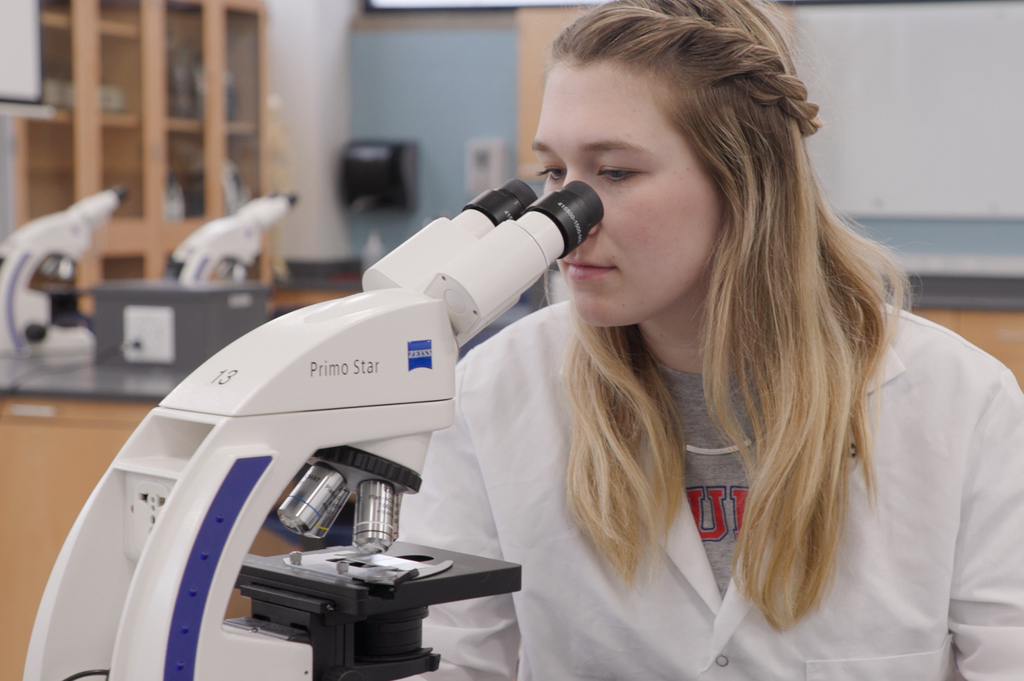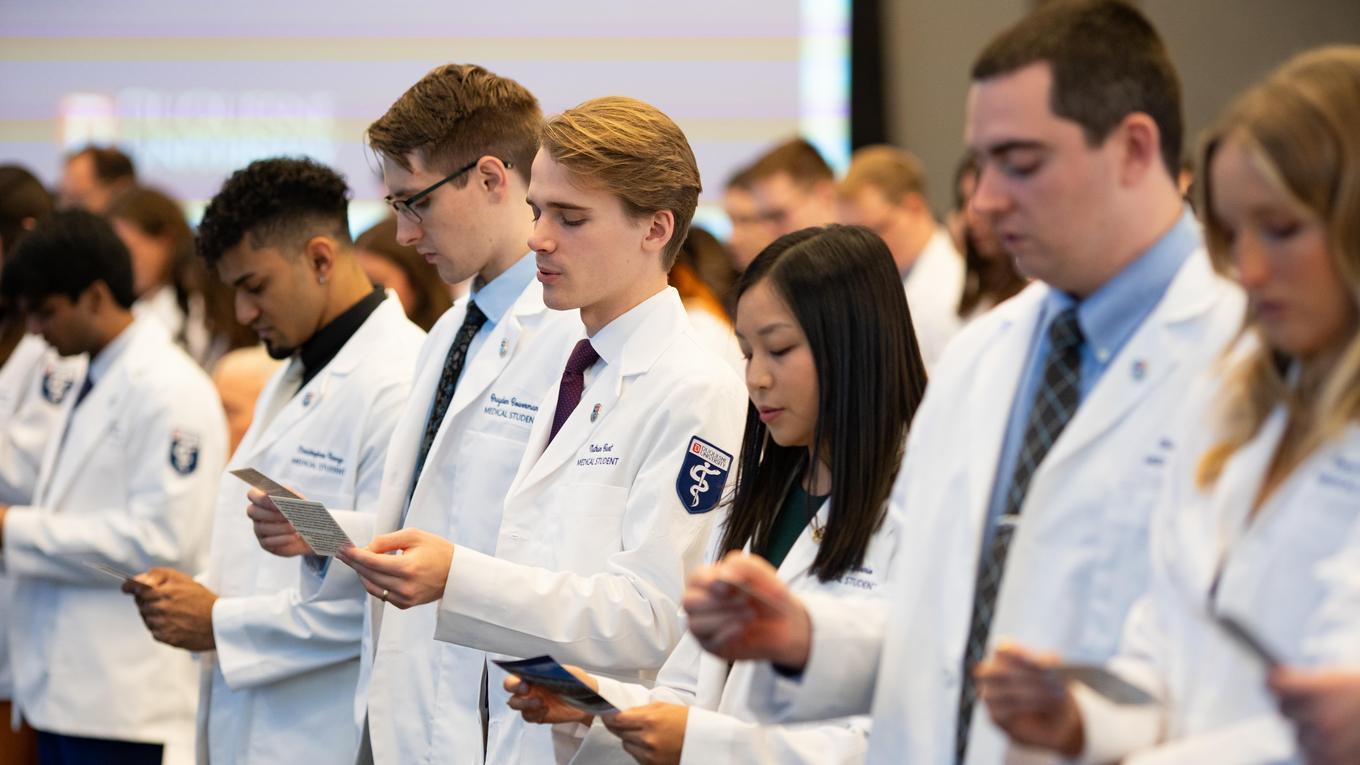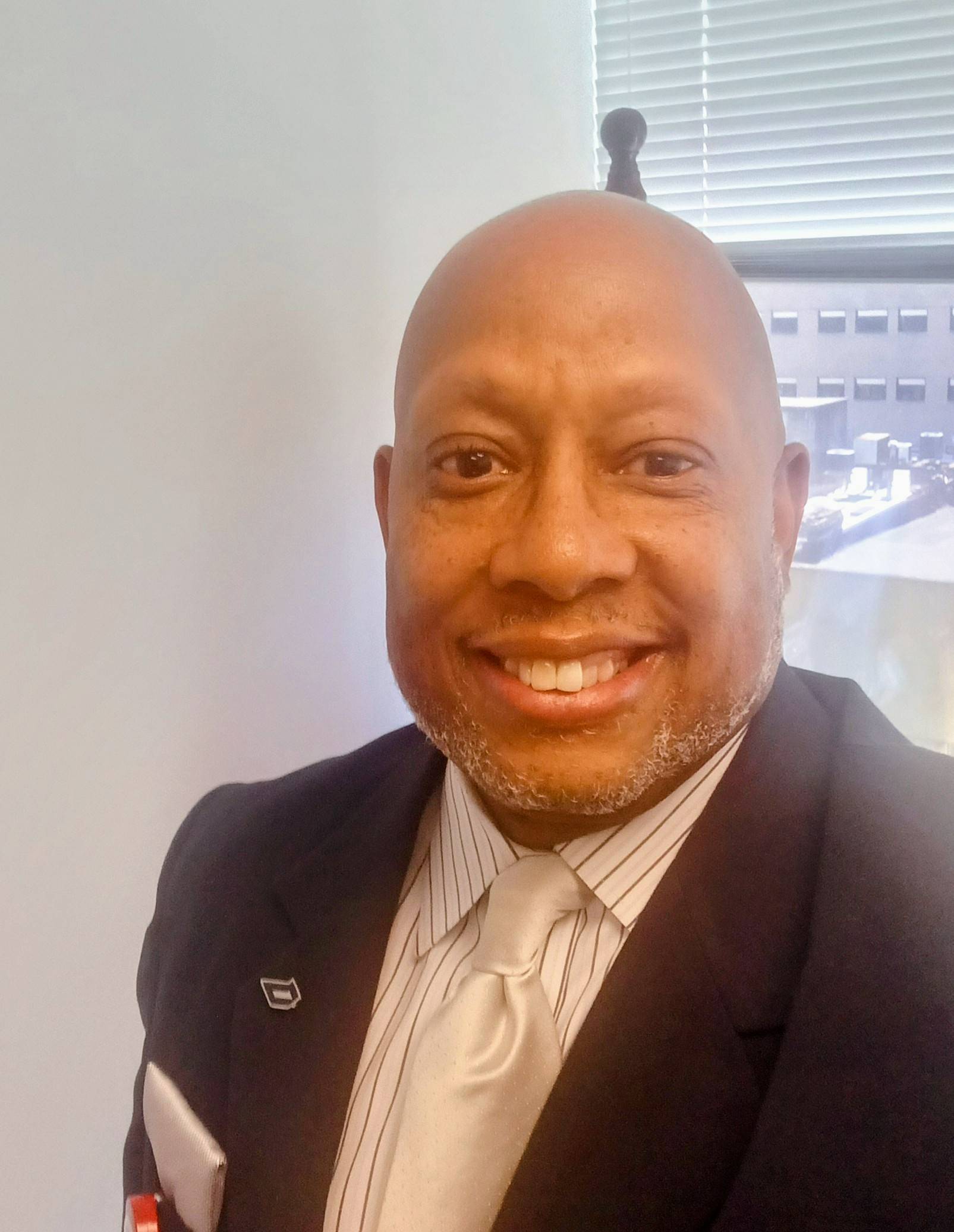Doctor of Osteopathic Medicine (DO)
Apply to Nasuti College of Medicine Available Medical School Scholarships Attend a Nasuti College of Medicine Virtual Info Session
You want to improve health equity and access to care for your community as a physician-leader. The Nasuti College of Osteopathic Medicine's Doctor of Osteopathic Medicine (DO) program at Duquesne University focuses on a culture of wellness and preventative medicine for everyone. It’s not just the methods; it’s a mindset.
Accreditation
Duquesne University’s Nasuti College of Osteopathic Medicine has received pre-accreditation status from the Commission on Osteopathic College Accreditation (COCA). This status means the University can recruit and admit students to the medical college and is approved to teach the curriculum for the Doctor of Osteopathic Medicine (DO) degree.
Program Information
A DO degree from Duquesne University in Pittsburgh, PA will prepare you to be a physician-leader to champion health equity in medicine.
Join our students who have hearts for social justice, health equity and community
service to impact positive change in health care. And, doing it with a little fun! You have plans for medical school and we can help you get there. Contact us directly
with any questions about the program or admissions process.D.O. Admissions Requirements & Timeline
Contact Us
Built on our 145-year legacy of serving others, here you will:
Pathway Programs
Duquesne offers two pathway programs for students interested in advancing to medical school.

Master’s in Biomedical Sciences (MBS) – Graduate
You'll have a competitive edge and be prepared to demonstrate your ability to succeed in medical school or any health profession with an MBS degree. The 10-month, accelerated residential MBS program is for graduate students who have completed an undergraduate degree in the life sciences. The program covers the majority of the first semester of the medical school curriculum and features anatomy instruction with virtual technology, physiology, pharmacology, pathology, microbiology, immunology, biochemistry and evidence-based medicine.

Early Assurance Program (EAP) – Undergraduate
Nasuti College of Medicine will admit a select number of first-year undergraduate students into our Early Assurance Program (EAP) who have been admitted to the University's Pre-Medical and Health Professions Program (PMHPP) and select programs in the School of Pharmacy (Pharmaceutical Sciences BS), John G. Rangos Sr. School of Health Sciences (Health Sciences BSHS and Public Health BS) or School of Science and Engineering (all programs except Civil and Mechanical Engineering). The program prepares students for the MCAT and medical school application process.
Duquesne University & AHN Partnership to Educate Next Generation of Physician Leaders
Duquesne University and Allegheny Health Network (AHN) have announced a new partnership to help educate the next generation of physician leaders in our region. AHN will serve as a clinical campus for the medical school, with many of our students beginning their clinical training at the network's Pittsburgh-area hospitals and outpatient clinics in summer 2026.
The D.O. Curriculum
You'll be prepared for anything because your curriculum will integrate scientific and clinical learning across all four years, beginning with foundational knowledge that progressively focuses as you identify and develop your professional goals.
During your first two years you will train in patient care, including family medicine, pediatrics, internal medicine and surgery, among others. Your training will include:
- Hands-on skills development in our state-of-the-art simulation hospital
- Clinically-oriented anatomy coursework using virtual anatomy technology, as well as ultrasound and diagnostic radiography imaging
- Intensive cadaver-based dissection early in year 1
- Year 2 coursework with an intensive four-week board prep study program to prepare you for the COMLEX-USA Level 1 and USMLE Step 1 exams
- Independent learning, lectures, team-based and case-based group work
Your third and fourth years will focus on more intensive hands-on clinical training in the Medical School’s simulation hospital, as well as in our urban and rural clinical partner facilities across Pennsylvania, Ohio and West Virginia. To help you prepare for final examinations, assessments follow each rotation.
Duquesne's medical school curriculum meets all Commission on Osteopathic College Accreditation
(COCA) guidelines. * Denotes Core/Required Rotations * Denotes Core Rotation **One elective should be a sub-internship in the specialty the student plans to go
into You understand the importance of research and how it contributes to the greater good.
We do, too, and our faculty will encourage you to join them in conducting and participating
in research and other scholarly activities in biomedical, clinical and translational
research. By doing so, you not only contribute to the larger body of scientific and
medical knowledge of our community, but you improve your application for residency
positions. Here are the answers to some frequently asked questions that you may find helpful.
Please let us know if you have any others. Full enrollment for the Nasuti College of Osteopathic Medicine will reach 170 students per class starting in 2026. The inaugural class (2024) welcomed 85 students. The second class (2025) grew to 137 students. Applications are now open for our next class—and we look forward to welcoming you! Yes, we will offer an Early Decision Admissions Track (EDT), and an applicant’s preference for being considered for early admissions can
be designated on the secondary application. Interviews for early admissions begin
in July of the year prior to matriculation. Dependent on class availability and in limited cases, students who would like to transfer
to the Nasuti College of Osteopathic Medicine may be accepted if they have: Yes, the Nasuti College of Medicine is a professional school and members of our community
represent the Medical School, the University and the profession. It is the expectation
that all students, faculty and staff maintain professionalism in their appearance,
hygiene and behavior. Your medical school classes start every July. The incoming cohort will start with
a two-day orientation program prior to classes beginning. Here, your success and well-being are our priority. We provide a comprehensive network of support to help you thrive: Academic support: Peer tutoring, faculty and course directors, assigned biomedical and clinical faculty
advisors, and the Department of Academic Excellence. Faculty mentoring: Our open-door policy ensures you have direct access to faculty guidance. Long-term
mentoring relationships include physicians, basic science faculty, and librarian mentors
to support your growth. Wellness resources: Students have access to extensive on-campus services for physical and emotional wellness,
as well as 24/7 off-campus resources to meet their needs anytime. We are here to support you every step of the way—academically, emotionally, and physically—so
you can focus on becoming the physician you aspire to be. This Handbook is your guide to the Nasuti College of Osteopathic Medicine. It contains
program-related information as well as information related to the policies, procedures,
and resources applicable to applicants and students. Curriculum
DO Program FAQs
Endowed scholarships
See Medical Student Handbook
This Handbook works in conjunction with other Duquesne University policies, regulations,
agreements, and guidelines, and is not a contract. It is not all-inclusive of the
policies and procedures of medical school.
The Nasuti College of Medicine eserves the right to amend and update this document
as needed without notice, as circumstances dictate.
Applicants and students are required to follow all policies and procedures that are
outlined in this Handbook. Violations of any of the aforementioned regulations are
subject to disciplinary action up to and including dismissal.



